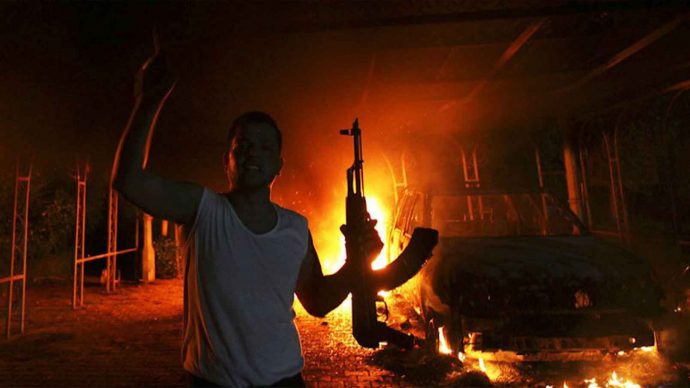By Bruce Thornton:
Under Trump, we’re starting to see the jihadist terror for what it really is.
The false analogy fallacy occurs when superficial similarities between events being compared are outnumbered by fundamental differences. This cognitive bad habit has always existed, but has become more prevalent since Vietnam and the increasing politicization of mass news on network and cable television, social media, and especially the internet. The specious analogy between a recent, short-lived attack on our embassy in Baghdad, and the 2012 Benghazi fiasco during Obama’s watch, is a recent example.
Useful analogies are predicated on the permanence of a flawed human nature driven by greed, power, or irrational hatreds. One of the greatest historians ever, Thucydides, explicitly said he wrote his history of the Peloponnesian War in order to provide “an exact knowledge of the past as an aid to the understanding of the future, which in the course of human things must resemble if it does not reflect it.” That’s why he called his history a “possession for all time.” Similarly the Roman historian Livy, writing at the end of nearly a century of savage civil wars, intended to show “what to imitate,” and to “mark for avoidance what is shameful in the conception and shameful in the result.” Without those aims, history is just antiquarianism or another form of high-brow entertainment.
And politics, which thrives on false analogies. The war in Vietnam left us two malign cultural consequences. The first was the antiwar Democrats and their media subsidiary transformed a military victory into a defeat. This created the Left’s paradigm for every U.S intervention abroad as prima facie a neocolonialist, unjust, racist war against national self-determination in order to profit arms manufacturers, the “merchants of death,” and other capitalist “malefactors of great wealth.” Following this ideological deformation came the “another Vietnam” false analogy, and the “Vietnam syndrome”: fear of casualties, self-doubt about our goodness, and angst over “quagmires” and “escalation.”
Read more: Frontpage Mag
Image credit: www.frontpagemag.com.

